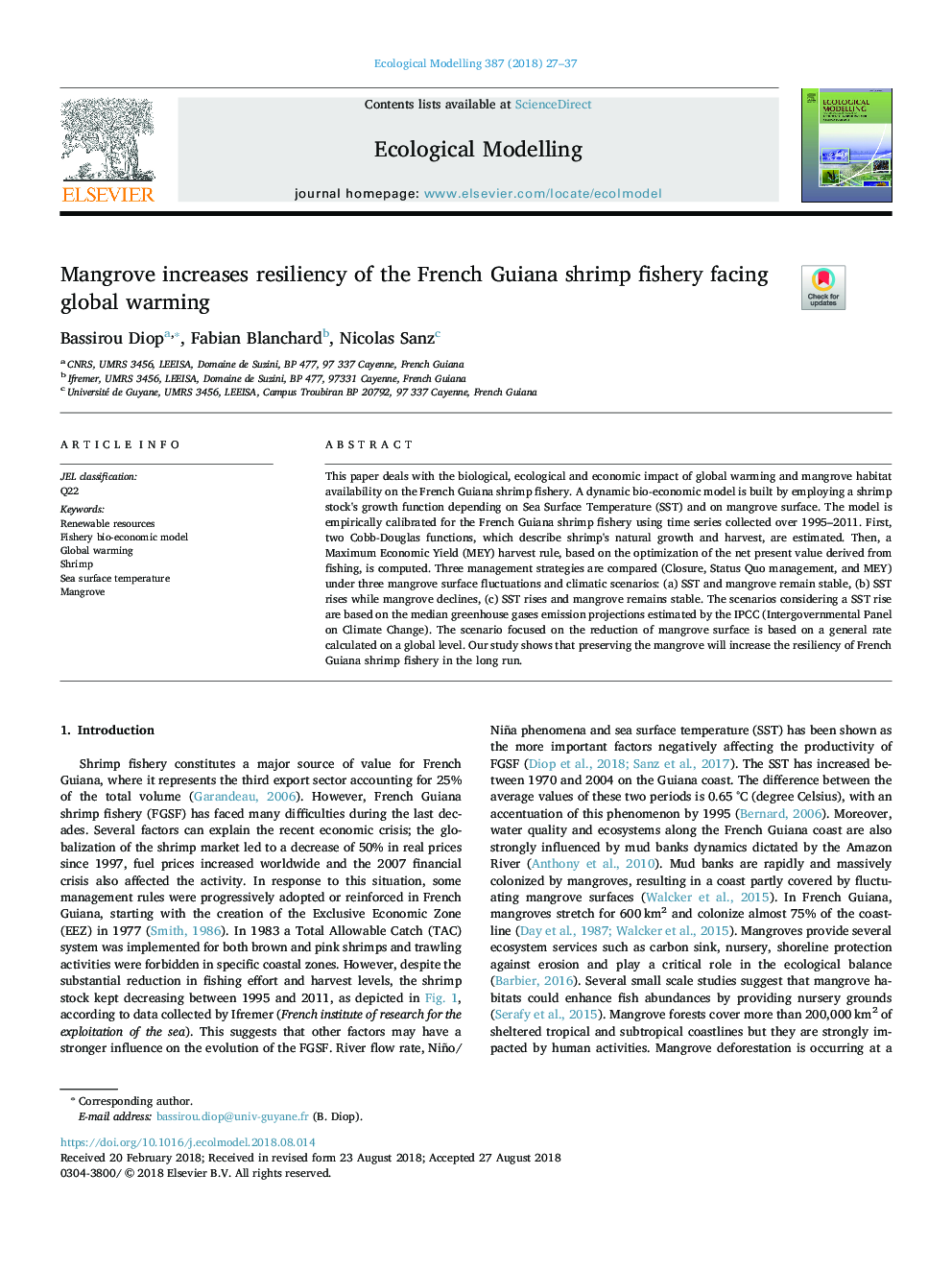| Article ID | Journal | Published Year | Pages | File Type |
|---|---|---|---|---|
| 8965884 | Ecological Modelling | 2018 | 11 Pages |
Abstract
This paper deals with the biological, ecological and economic impact of global warming and mangrove habitat availability on the French Guiana shrimp fishery. A dynamic bio-economic model is built by employing a shrimp stock's growth function depending on Sea Surface Temperature (SST) and on mangrove surface. The model is empirically calibrated for the French Guiana shrimp fishery using time series collected over 1995-2011. First, two Cobb-Douglas functions, which describe shrimp's natural growth and harvest, are estimated. Then, a Maximum Economic Yield (MEY) harvest rule, based on the optimization of the net present value derived from fishing, is computed. Three management strategies are compared (Closure, Status Quo management, and MEY) under three mangrove surface fluctuations and climatic scenarios: (a) SST and mangrove remain stable, (b) SST rises while mangrove declines, (c) SST rises and mangrove remains stable. The scenarios considering a SST rise are based on the median greenhouse gases emission projections estimated by the IPCC (Intergovernmental Panel on Climate Change). The scenario focused on the reduction of mangrove surface is based on a general rate calculated on a global level. Our study shows that preserving the mangrove will increase the resiliency of French Guiana shrimp fishery in the long run.
Related Topics
Life Sciences
Agricultural and Biological Sciences
Ecology, Evolution, Behavior and Systematics
Authors
Bassirou Diop, Fabian Blanchard, Nicolas Sanz,
